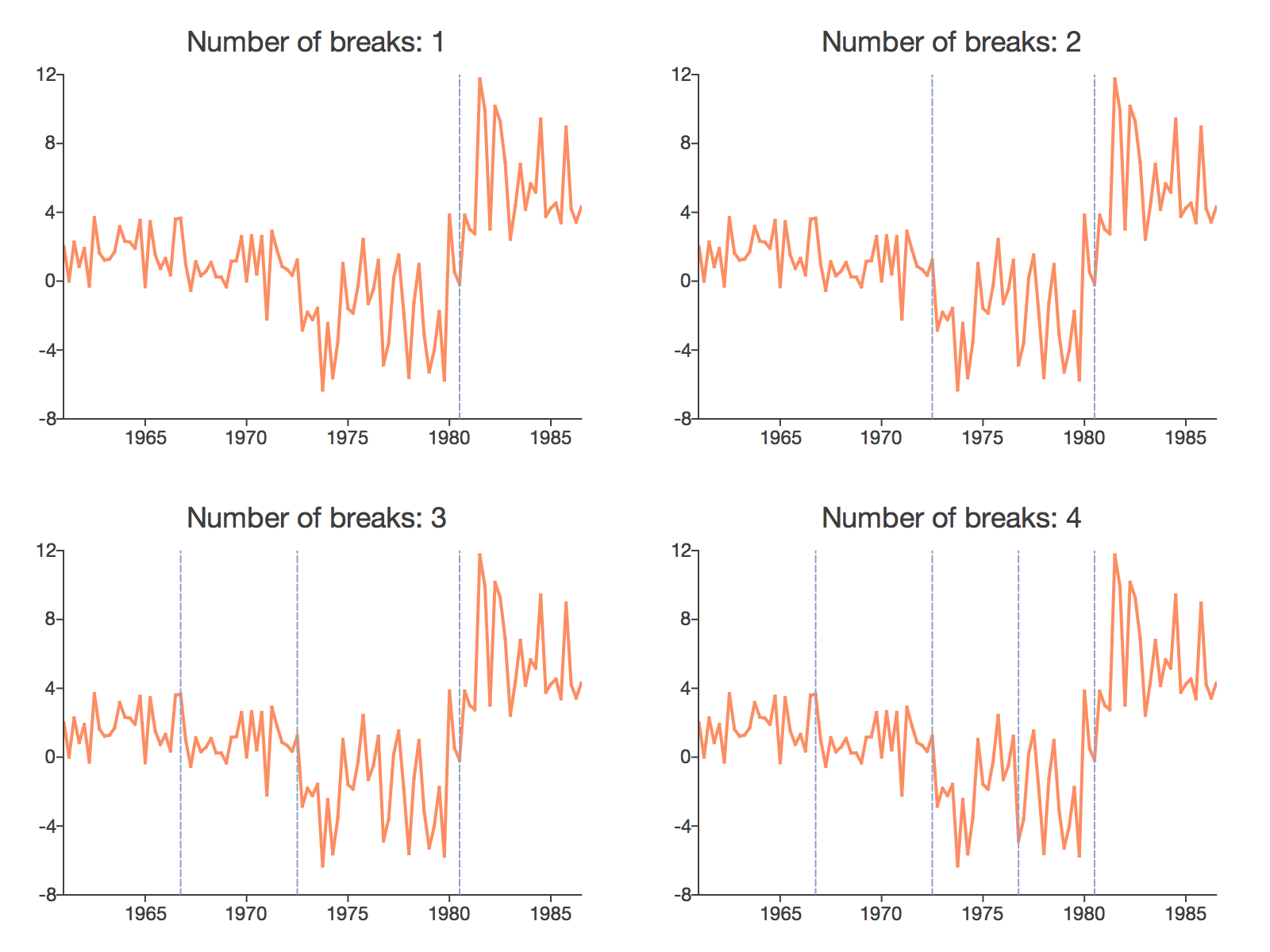Introduction
This example follows the empirical estimation of Bai and Perron (2003). It uses the GAUSS procedure sbreak to estimate structural breaks in the mean of the US expost real interest rate.
Step 1: Load data
new; cls; library tsmt; // Create file name with full path fname = getGAUSSHome() $+ "pkgs/tsmt/examples/real_intrate.csv"; // Load all observations from the dataset y = csvReadM(fname); // Specify regressors // Time varying coefficients in z z = ones(rows(y), 1); // No time invariant regressors x = 0;
Step 2: Apply estimation settings
An sbControl control structure is used to control the model characteristics, such as:
- The number of regressors which can change.
- The number of changes to be tested.
- Data trimming.
- Graph and printed output controls.
// Declare sbControl structure // and fill with default settings struct sbControl sbc0; sbc0 = sbControlCreate(); // Number of regressors subject to change sbc0.q = 1; // Number of structural changes sbc0.m = 4; // Trimming percentage sbc0.trim = 0.15; // Minimum length of segment (h > p + q) sbc0.h = 0; // Print iteration output sbc0.printOutput = 1; // Maximum number of iterations sbc0.maxIters = 40; // Turn on graphing capability sbc0.graphOn = 1; // Start Date sbc0.dtstart = dtdate(1961, 01, 01, 0, 00, 00); // Annual frequency of data sbc0.frequency = 4;
Step 3: Estimate the model
All output from the sbreak function can be stored in an sbOut output structure.
//Declare output structure struct sbOut out; //Estimate model out = sbreak(y,z,x,sbc0);
Step 4: Output
The printed output from sbreak reads
Global optimization of structural change model The model with 1.0000000 breaks has SSR : 644.99552 The dates of the breaks are: Q4-1980 The model with 2.0000000 breaks has SSR : 455.95018 The dates of the breaks are:
Q4-1972 Q4-1980 The model with 3.0000000 breaks has SSR : 445.18186 The dates of the breaks are:
Q1-1967 Q4-1972 Q4-1980 The model with 4.0000000 breaks has SSR : 444.87975 The dates of the breaks are:
Q1-1967 Q4-1972 Q1-1977 Q4-1980
In addition, the procedure produces graph shown at the top of this page.


